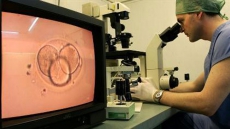While social factors, particularly the western ideal of thinness, is largely blamed for increasing rate of eating disorders over the past several decades, loss of a gene also contributes to your obsession with having a thin figure, suggests a study.
The researchers identified that lack of the estrogen-related receptor alpha (ESRRA) gene is linked to anorexia nervosa, an eating disorder characterised by food restriction and an irrational fear of gaining weight.
"This work identifies estrogen-related receptor alpha as one of the genes that is likely to contribute to the risk of getting anorexia nervosa or bulimia nervosa," said lead researcher Michael Lutter, assistant professor of psychiatry at the University of Iowa.
"Decreased calorie intake usually motivates animals, including humans, to seek out high-calorie food. These findings suggest that loss of ESRRA activity may disrupt that response," Lutter explained.
Loss of this gene in mice leads to several behavioural abnormalities that resemble behaviours seen in people with anorexia nervosa, the researchers noted.
For the study, the researchers manipulated ESRRA in mice to investigate the gene's role in behaviour.
Through a series of experiments with genetically engineered mice, Lutter and his team showed that mice without the ESRRA gene have behavioural abnormalities related to eating and social behaviour.
In particular, mice without ESRRA showed reduced effort to work for high-fat food when they are hungry.
The mice also exhibited impaired social interaction and female mice without the gene showed increased compulsive grooming, which may mimic obsessive-compulsive-type behaviour in humans, the researchers noted.
However, according to Lutter, the increasing rate of eating disorders over the past several decades is likely due to social factors, not genetics.
"Clearly social factors, particularly the western ideal of thinness, contribute the remaining 'non-genetic' risk," Lutter noted.
The study appeared in the journal Cell Reports.




